Caring for sleep problems in elderly
Tags
24 Hours of Care at Home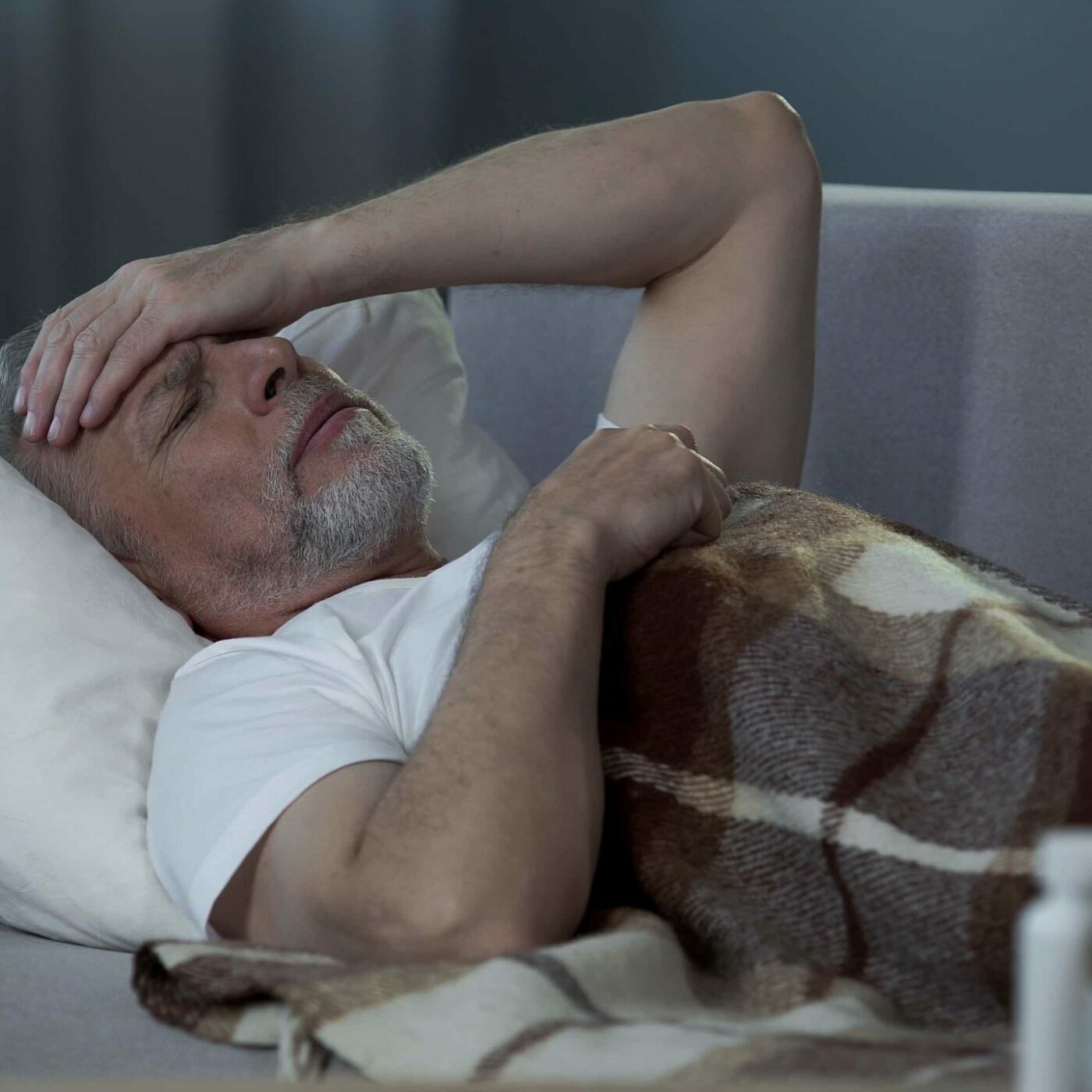
Getting quality sleep is essential for everyone’s overall well-being. This care guide explores the importance of good sleep habits for older adults, common causes of restlessness at night, symptoms of sleep disorders, and practical ways to help your loved ones achieve better sleep. We also explain how a live-in carer can significantly contribute to promoting a restful night’s sleep and why live-in care may be the right step in helping you or your loved one.
Why is it essential for older people to sleep well?
A good quality of sleep is necessary for recharging your body and mind. It keeps you refreshed and alert when you wake up. Adequate sleep also helps maintain overall health and prevent diseases, as while we’re sleeping our body is working to restore energy balance, intellectual function, alertness, mood and our immune system. Poor sleep affects brain function, leading to difficulty concentrating, clear thinking, and memory processing.
According to the National Sleep Foundation adults typically need at least seven hours per night of quality sleep. Maintaining a healthy diet and positive lifestyle habits can contribute to achieving a sufficient amount of sleep. However, for some individuals, a chronic lack of sleep may indicate the presence of a sleep disorder.
Regular sleep deprivation can have an impact on pre-existing conditions like dementia, especially considering that the majority of individuals with dementia are over 65. Older individuals must prioritise their sleep in quantity and quality to maintain their health. Furthermore, insufficient sleep increases risk factors such as falls and chronic conditions.
Lack of sleep or poor quality sleep has been found to have several other negative effects on our health, including an increased risk of heart disease and diabetes. It can also impact our mood and mental well-being, making us more susceptible to depressive symptoms and anxiety. Overall, lack of sleep can affect our whole quality of life.
What can cause restlessness at night in older people?
It’s a common occurrence for adults to experience changes in their sleep patterns in late life. These changes are often caused by medical conditions and changes in the body’s internal clock, located in the brain’s hypothalamus and consisting of approximately 20,000 cells forming the suprachiasmatic nucleus (SCN).
The SCN regulates circadian rhythms, which affect hunger, hormone release, and sleepiness/alertness.
As individuals age, their sleep patterns are affected by changes in the SCN, which can lead to disruptions in circadian rhythms and alter their feelings of tiredness and alertness.
The SCN receives information from the eyes, and light is a significant factor in maintaining circadian rhythms. However, studies indicate that many older adults don’t receive enough daylight exposure, with an average of only one hour per day. This lack of exposure may be even more pronounced for individuals in nursing homes and those with Alzheimer’s disease. A lack of daylight exposure or activity during the day may lead to regular early-morning awakenings and increased tiredness
Changes in hormone production, including melatonin and cortisol, may be a reason for poor sleep quality in older adults. As we age, the secretion of melatonin decreases. Melatonin is typically released in response to darkness and regulates sleep patterns.
Symptoms of a sleep disorder
Below are symptoms that may indicate common sleep disorders. If these symptoms occur regularly, it’s advisable to consult your doctor.
- Constant difficulties with falling or staying asleep.
- Drowsiness during the daytime.
- Experiencing discomfort in the legs at night – this may also be restless legs syndrome.
- Daytime sleepiness – Low energy or fatigue in the day.
- Finding it hard to focus and concentrate.
- Abnormal sleep actions and movements in sleep, such as kicking, calling out or shouting, and acting out dreams.
- Finding it hard to breathe when you wake up.
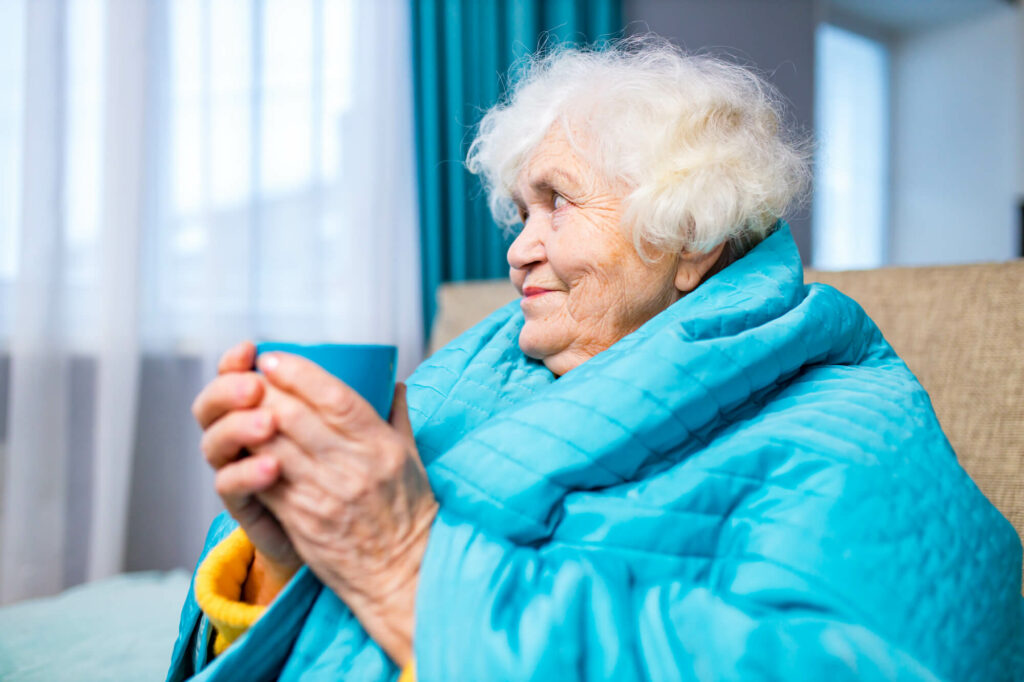
Practical ways to sleep better
Regular sleep patterns
A consistent sleep schedule is recommended, such as going to bed at the same time each night. and waking up around the same time, aiming for at least seven hours of sleep. Sleeping in when tired can disrupt the body clock and make sleeping more difficult when night comes. Also, avoid spending time in bed during the day, if possible, as the type of rest will disrupt the ability to fall asleep at night.
Start a sleep diary
Keeping track of when you go to bed, when you wake up in the morning, and any instances of fragmented sleep can help you work out how much sleep you’re getting on average a week, and whether you need to additional support with your sleep.
As well as sleep duration, you can also record details of each mights routine, which may also help you figure out if any of your actions or habits are impacting your sleep. Bupa has a free sleep diary template you can download here.
Make bedtime feel like bedtime
The brain can be encouraged to recognise when it’s sleep time by following a relaxing evening ritual. Be sure to try out some different things before you settle on what’s right. Try getting your loved one to reading a book, putting away electronics for an hour before sleeping (blue lights on screens make the brain think it’s daytime), meditation meditating, doing a puzzle, having a warm bath, or doing some gentle stretching. Avoid potential sleep disturbances such as a tv in the bedroom, phones on loud or anything else that may disrupt the sleep environment.
Controlled naps
A quick nap can help with your alertness later in the day. However, If you nap in the day you may need to impose some level of sleep restriction – limiting daytime napping to 20 – 30 minutes – any longer and the body will fall into a deeper sleep, affecting the ability to fall asleep again at night.
Eat and drink with sleep in mind
Consuming a substantial meal late at night can hinder your ability to fall asleep. Opting for lighter meals earlier in the evening is recommended. Having dinner at least 3 hours before bedtime is generally advised.
Consuming coffee after lunch may result in difficulty falling asleep due to excessive caffeine intake, so limiting consumption as early as possible is advisable.
Alcohol can also impact your sleep cycles, so if you or your loved one typically relax with a glass of wine in the evening, consider reducing your intake to see if it affects your sleep at night.
Comfortable bedroom
Bedrooms should be a relaxing environments. Fresh, clean bedding can help someone feel cosy and sleepy, and there should be enough pillows to support the neck.
Make sure the bedroom is dark enough. A dark, quiet bedroom is best for an unbroken sleep. If it’s too bright, you could install blackout blinds or curtains or buy an eye mask. Try earplugs if your or your loved one’s bedroom is noisy, or sound can easily travel from other rooms in the home.
Any electrical items that can emit bright lights, such as TVs on standby or mobile phones, should be switched off so that they don’t provide a distraction.
If it’s not comfortable sleeping in total darkness, a night light or a light on the landing outside the room may help, particularly if needed to get up to the toilet during the night.
In addition to bedding, nightclothes might also affect how good sleep someone gets. If your loved one needs dementia care, they may not be aware if their nightwear is irritating, uncomfortable or restrictive, and you may find that changing to loose cotton sleepwear will help them.
Don’t try to force sleep
Despite doing everything right, you or your loved one still might experience disturbed sleep and struggle to nod off again. If that happens, wait it out for 20 minutes. If still wide awake, get up and go into another room.
Find something relaxing to do, like reading or listening to the radio – try to avoid any activities that are too involved, like housework or watching TV, as these can both wake the body too much. After 20 minutes, go back to bed. If not you or your loved one still can’t fall asleep, repeat the process.
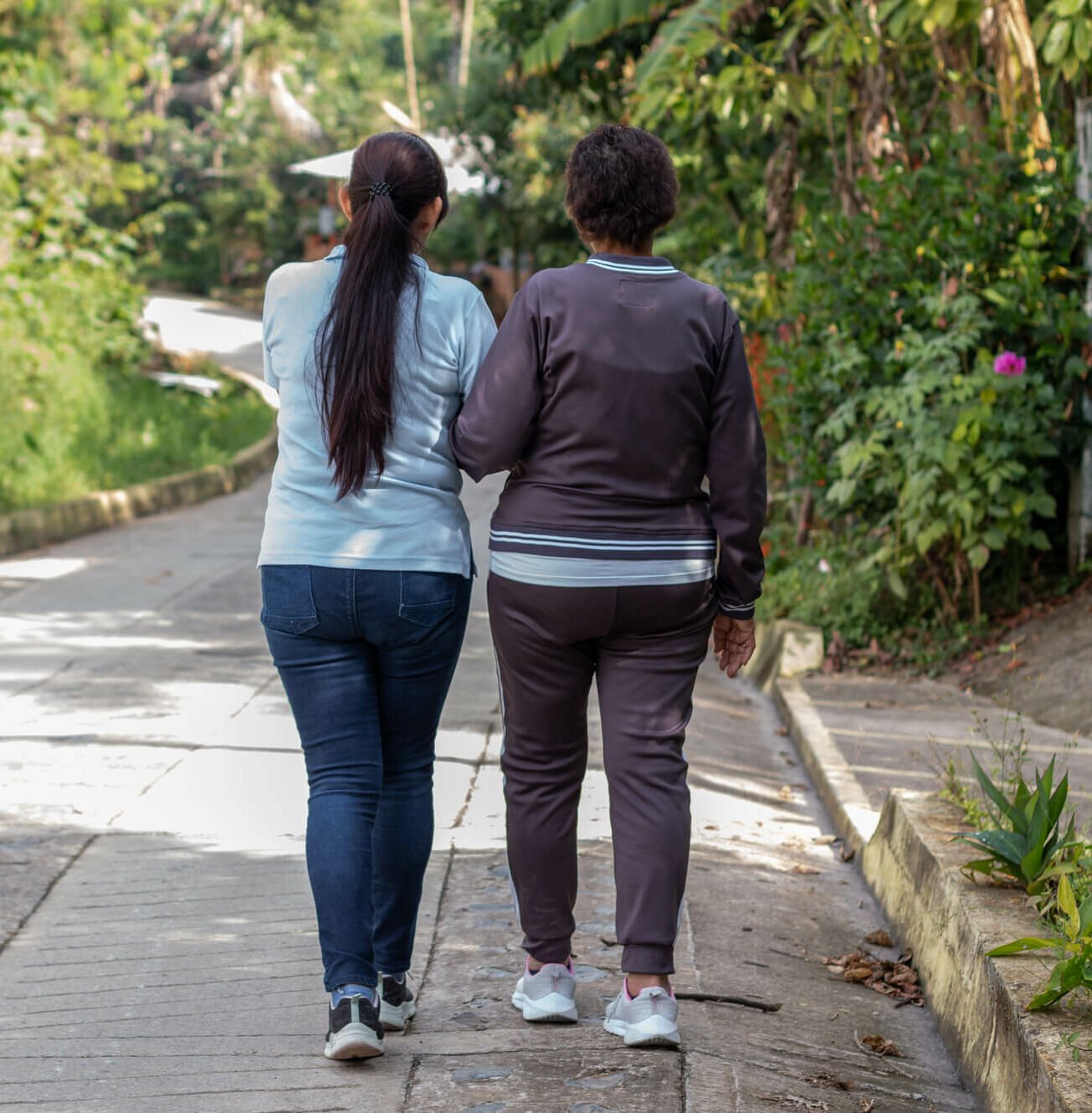
Increase activity levels to create tiredness
As people age, it may get increasingly difficult to exercise regularly, especially if there are mobility problems. However, increased and regular physical activity will help with tiredness at bedtime. If you or a loved one have care at home or companion care, talk to the carer about going for short walks together or taking part in gentle exercise such as swimming, if possible.
Getting outside is particularly beneficial because exposure to daylight can help stimulate melatonin production in the body. This increases the amount of oxygen in the brain and will improve general health and sleeping patterns – studies have found that less exposure to daylight influences sleep deficiencies for the elderly.
In addition to physical exercise, mental stimulation is also necessary. Participating in mentally stimulating hobbies can help use the brain and increase tiredness. Puzzles such as crosswords and Sudoku are ideal, but if these are too challenging, a simple jigsaw will also challenge an older adult’s brain.
How a GP may help with sleep disruption
A general practitioner will help find the underlying cause of your sleep-related issues and insomnia and provide appropriate treatment. They can help you identify triggers or causes of your sleep deficiencies, such as anxiety, depression or stress – however, there can be many other reasons. They may refer you or your loved one to a therapist for cognitive behavioural therapy (CBT). This can assist in changing the thoughts and behaviours that hinder healthy sleep.
If you have symptoms of another sleep disorder, such as sleep apnoea, you may be referred to sleep specialists.
Currently, GPs don’t commonly prescribe sleeping pills as a treatment for insomnia because of their potential serious side effects and the risk of dependence. Sleeping pills are typically prescribed for a limited duration, usually a few days or weeks at most if insomnia is severe and all other treatments have been unsuccessful.
How a live-in carer can help
Create a comforting and secure environment.
An overnight live-in carer can provide various benefits, such as reducing the risk of falls, offering nighttime support for security, and assisting with getting in and out of bed if necessary. It’s often essential to have an overnight carer following a surgical procedure like a hip replacement when mobility may be limited, and there may be difficulties with incontinence and accessing the bathroom.
Promotes a restful night’s sleep.
Medication can disrupt sleep-wake cycles, and an overnight carer can provide assistance and comfort during the night if your loved one can’t sleep. They can have chats, provide a warm drink, regulate bedroom temperature, or play calming music. The presence of an overnight live-in carer can help your loved one achieve a restful night’s sleep, and evening live-in care can be beneficial in establishing a consistent evening routine.
Help in creating regular routines and reduces nighttime anxiety
A carer can assist with meal times and remind someone to take medication, such as sleep medications, in the evening, providing comfort and alleviating anxieties to ensure a peaceful night with deep sleep. They can even help to create and maintain a regular sleep schedule.
Read more care guides

How to prepare for a live-in caregiver
Care at home: how to prepare the home for a live-in caregiver A live-in carer can make a massive difference to your loved one’s quality
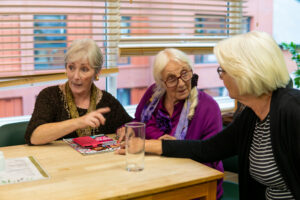
6 tips for finding the right live-in carer
Finding the right live-in carer is a significant and deeply personal decision, impacting your loved one and the entire family. You’re seeking someone trustworthy, compassionate,

The cost of care – everything you need to know
The true cost of care – everything you need to know Discover the true cost of care and explore your funding options with our care

Understanding autism in older adults
While Autism is usually diagnosed in childhood, an increasing number of older adults are being formally diagnosed in later life. Masking autism symptoms can result

A guide to speaking with a loved one about home care
Why do older adults resist care? A guide to speaking with a loved one about home care Bringing up the topic of care at home
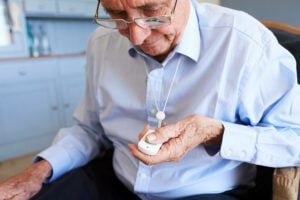
How to choose the right personal alarm for seniors: A comprehensive guide
Personal alarms for elderly Discover how personal alarms work, who they’re best suited to, and how they provide greater peace of mind to older people